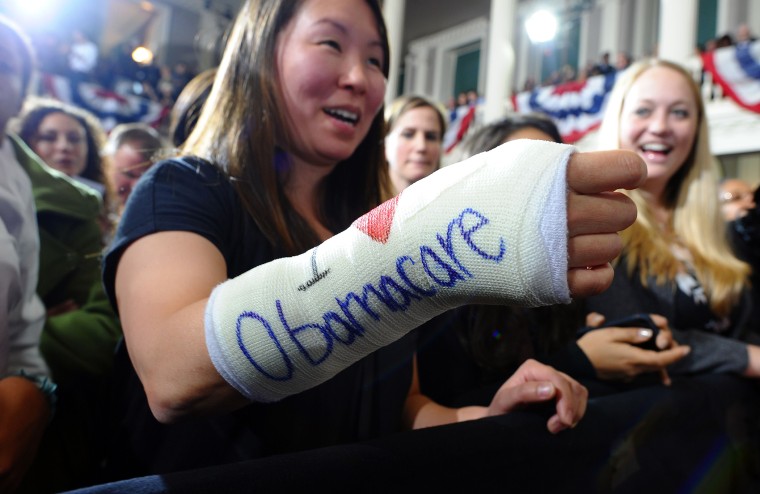Birth control has proven highly effective and reliable. It's also been good for Democrats’ political fortunes. So it's not surprising that Democratic officials, and elected women in particular, are returning to the issue in response to the continual assault on the Affordable Care Act.
“In recent weeks in the debates about the working of the federal exchange, a lot has gotten lost,” said Rep. Diana DeGette, Democrat of Colorado, on a press call featuring female members of Congress. “The Affordable Care Act is already working for millions of Americans.”
The amount of attention given to the website launch might make it seem that Obamacare started on October 1. But the required preventative care provisions, including birth control without a co-pay, kicked in way back in August 2012, and an estimated 27 million women are already benefiting from them. Those provisions, however, are among the most controversial in the ACA, even as they are politically popular with the Democrats' base.
On the same call, Rep. Jan Schakowsky cited a study in which nearly half of young women said they hadn’t used their birth control as directed because they wanted to cut down on costs. “For women, contraception isn’t a matter of ideology, it’s a matter of health,” she said.
But it is, in fact, a matter of ideology for plenty of people, including the United States Conference of Catholic Bishops and the dozens of for-profit and non-profit companies that have sued the Obama administration seeking an exemption from covering some or all forms of contraception on their employee health plans. Last week, the Supreme Court said it would hear two such cases from for-profit companies who object to contraception and say that contributing to paying for birth control for their employees violates their religious liberty.
"If this court is really about what it’s supposed to be about, standing up for individual rights, they will back the individual rights of the employee to make decisions about their health care," said Sen. Barbara Boxer of the Supreme Court taking up the case. "What if your boss believes you should just pray your way to health?"
Contraceptive coverage isn't the only women-specific preventative care requirement; insurance plans are also mandated to cover annual checkups, mammograms and cervical cancer screenings without a co-pay. “Catching problems early saves lives. That’s a fact, not a theory,” said Boxer.
At Politico’s Women Rule Summit, also on Wednesday, Senator Kirsten Gillibrand brought up the same issue. “If it was 51% [women] in the Congress, we wouldn’t be wasting time talking about access to contraception, we’d be talking about the economy,” she said.
But talking about access to contraception as an economic issue--and Republican attacks on it--hasn't been a bad deal for Democrats. According to the recent book Double Down, debate raged within the White House last year over whether the contraceptive coverage guidelines, which were eagerly pounced on by Republicans, would cause Catholic voters to defect or whether they would be a win with women.
In the end, Planned Parenthood's active campaigning on the issue alongside President Obama and in competitive congressional districts was broadly considered a success. It was credited with turning out the single women who helped Democrats keep the Senate and the presidency. And it's expected to be a crucial part of the Democratic strategy going into 2014, where a handful of highly visible women are running in tough races. That will be true no matter what the Supreme Court decides on the issue in June.
